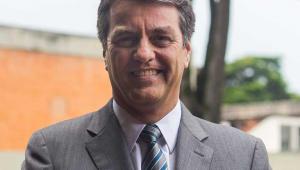By Richard Johnstone | 2 December 2014
World Trade Organization director general Roberto Azevêdo has said the work of the multinational body is ‘back on track’ after an agreement was reached to implement measures to liberalise trade first agreed last December.
At a meeting of the organisation's general council, which concluded last week, it was agreed action would be taken to liberalise trade in food and agriculture, including implementing new regulations governing the amount of subsidies national governments can provide to producers.
These rules state that support can be provided for domestic agriculture under an exemption called a ‘peace clause’ if countries are able to show they target funding in a way that avoids distorting trade.
The plan had first been developed at the WTO conference in Bali in Indonesia last December, but its introduction had stalled due to a lack of agreement over how it would be enforced.
Speaking last week, Azevêdo said the agreement on implementation – including that the peace clause could remain in place beyond a deadline of 2017 for a permanent agreement on agriculture support – had put the WTO ‘back in the game’.
‘We have put our negotiating work back on track — that means all the Bali decisions: trade facilitation, public stockholding, the Least-Developed Countries issues, the decisions on agriculture, development, and all of the other elements. And we have given ourselves the chance to prepare the post-Bali work program,’ he added.
‘But, crucially, during this process we have seen a renewed commitment to the multilateral system. Members have shown the willingness to compromise — and a real commitment to the multilateral system.’
However, Azevêdo said reform to the operation of the WTO was needed to avoid such delays to implementation in the future.
‘I think we would all agree that we need to find an easier way of doing things,’ he said.
‘While we have seen renewed commitment to the WTO, the truth is that we must avoid repeatedly putting ourselves in this position. We have to think about how we can operate in a more efficient way.’
Speaking on Saturday following the talks, International Monetary Fund managing director Christine Lagarde backed the WTO deal on implementation.
‘I strongly welcome the decisions adopted by the General Council of the World Trade Organization on November 27, related to public stockholding for food security purposes, the Trade Facilitation Agreement and the post-Bali work,’ she said.
‘These decisions reaffirm the commitment of the international community to an open trade system. They also provide an important opportunity for advancing multilateral trade negotiations in other areas, which is essential to bolster global growth, create jobs and reduce poverty.’













